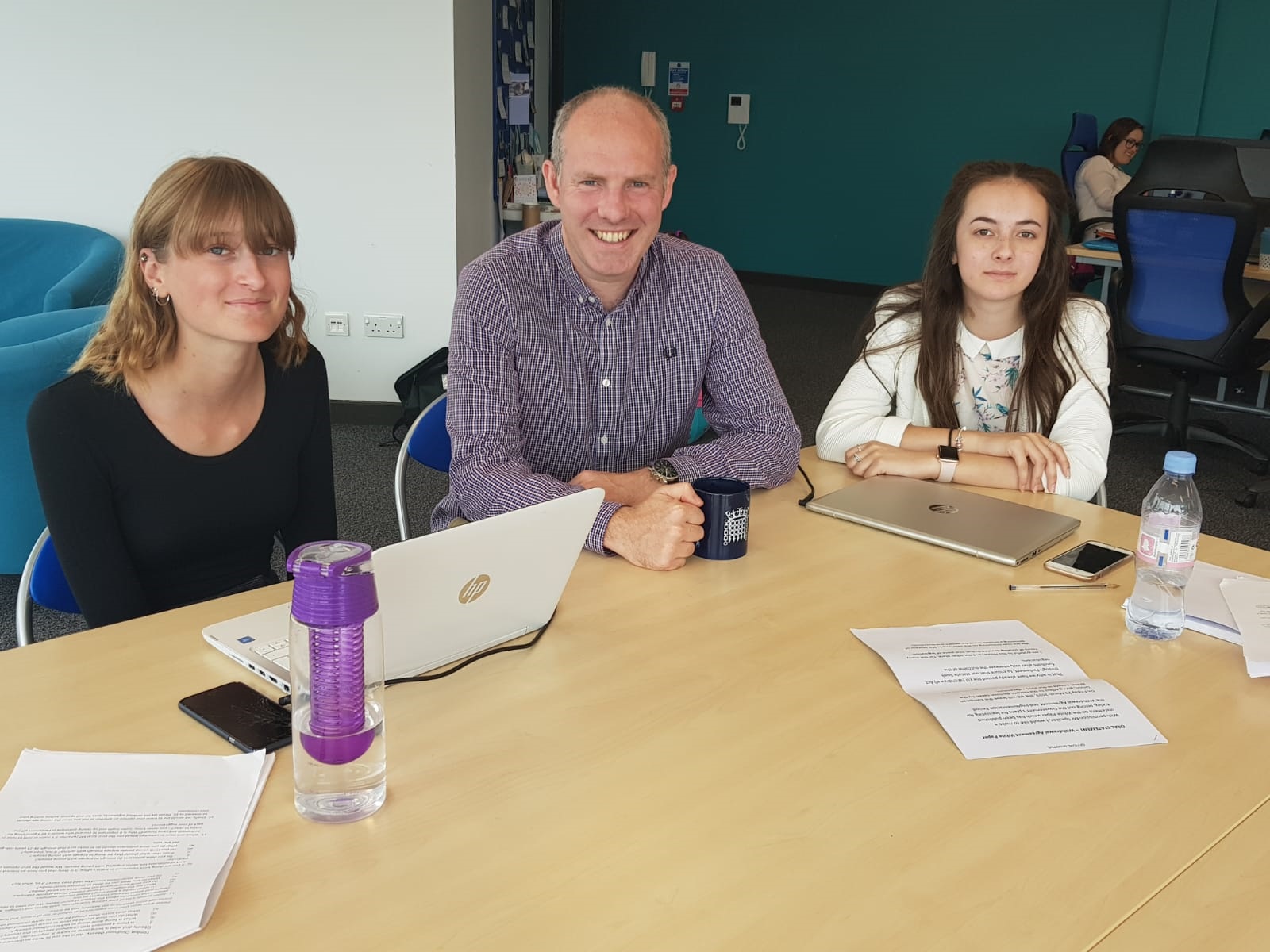
Justin Tomlinson MP is keen to welcome students from across Swindon to experience what life is like as a Member of Parliament, and see first-hand the work he does to represent them.
During half-term and the summer holidays, Justin is regularly accompanied by students who get the opportunity to see how an MP works, what happens in a busy constituency office, and learn more about how the North Swindon MP meets with local residents and businesses to ensure their voices are heard.
Below are the reflections written by two more students who have joined Justin for work experience in recent days.
Caitlin Holmes – The role of an MP
My perception of what the role of an MP is has definitely changed during my time on work experience. Before coming into the office for the week of work experience I didn’t have much of an idea of the type of work Justin did but now I’ve spent a week in his office I can understand how much work goes into being an MP. I think that the casework and meetings with residents was something I didn’t think MPs would deal with however it seems Justin is really hands on with his constituency which was a great surprise.
The casework and writing letters out to constituents was definitely something I didn’t realise the office staff would have to do. For example I didn’t realise they would be so involved in resolving cases relating to housing or immigration but actually they do try their best to get results for constituents for all issues raised. In terms of writing letters I didn’t think that Justin would have as much contact with residents in that formal way at all because I thought the main focus would lie in parliament but it was nice to see the responses he gets out to local people.
My highlights have been talking to the office staff and being taught the kind of work they are involved in. I sat with a couple of Justin’s caseworkers and looked into some of the cases they were dealing with and the ways they respond to constituents which was really interesting. I also got the opportunity to draft a letter to a constituent regarding a grass cutting issue they were concerned with which was great. Later on in the week I also ran through the proposed bills with Justin and worked out how I would vote on each bill, plus the pros and cons which was really interesting due to its link into my interest in politics.
Within the week I found looking at the proposed bills and deciding the strengths and weaknesses quite challenging because a lot of the bills didn’t affect me directly and actually were regarding issues I wasn’t aware of such as drone regulation or pilot licensing which made difficult to decide whether the bill would be positive or not.
If I could say one thing to the public about the work done in Justin’s office I would say that he does a lot more work than you might imagine and that any issues you may want to raise would be dealt with not only quickly but efficiently by him and his office staff. I feel as though his job is made up of a lot more factors than people tend to presume.
Isabel Dharmasiri - The work of an MP
I think that there are many different perceptions of what a member of parliament actually does, which may vary due to experience, age, and knowledge. However, through my experiences working in the office last year, as well as being involved in various forms of youth politics, this is my personal insight into the role of an MP and what I believe a good MP should do.
The first, and perhaps what may seem the simplest job, is to listen to the views of their constituents. It is inevitable that people will have issues with and within their local area. Therefore, an MP, being the one with the power to fix the issues, should be there to listen to them. If you have an insight into the actual problems within an area, you are able to make the biggest possible difference to a community, making an MP successful.
The next thing that I think is very important for an MP to do is to action solutions which will eventually solve the issues that their constituents raise. As I have seen through working in the office, the most efficient way to do this is by having a team of caseworkers, who handle issues ranging from trees not being cut, to people being made homeless. This works well because having multiple people working on cases allows the workload to be shared out, meaning that each individual issue is dealt with carefully and with consideration.
Finally, it is vital that an MP votes in parliament to represent the views of their constituents. This may seem obvious, but there are all too frequently cases of MPs not actually turning up to vote on issues that may not be important to them personally but could still be important to their constituents. In my opinion, an MP simply just the voice and representative of an area in parliament, therefore they should be representing their constituency in all parliament votes.

